In the lead up to COP26, Rolls-Royce, Airbus and Shell are calling for further ambition and collaboration across the aviation sector, and together with governments, to enable the transition of long-haul aviation towards net zero ahead of aviation goals set by the UN’s Race to Zero campaign. Under the goals, the current breakthrough required for aviation decarbonisation is to achieve a minimum of 10% use of sustainable aviation fuel (SAF) by 2030 and not reaching 100% earlier than 2050. However, the three companies say their investments could enable that to happen sooner. While all-electric, hybrid-electric and hydrogen technologies will have a role to play over the medium to long term, SAF represents the clearest pathway for net zero flight over longer distances, they agree. Rolls-Royce is now committing that by 2023, all its Trent engines, which are used across a range of long-haul aircraft, will have been proven compatible to run with 100% SAF, compared to the maximum 50% currently certified for commercial operations. Rolls-Royce CEO Warren East told the BBC that fully sustainable synthetic fuels produced from direct carbon capture were the long-term answer for powering long-haul flights. Rolls-Royce reported on October 19 that it had carried out a test flight in the United States of its 747 Flying Testbed aircraft using 100% SAF on a Trent 1000 engine.
The engine manufacturer says 100% SAF capability would mean that within two years, net zero carbon operation would be possible with about 40% of the world’s long-haul aircraft engines.
Airbus, like its Boeing rival, has set an ambition to achieve certification of 100% unblended SAF by the end of this decade. “In the meantime, accelerating our progress on SAF will require a collective effort, and the time to act across sectors and companies is now,” said Airbus CTO Dr Sabine Klauke.
Aviation used around 290 million tonnes of fuel a year prior to the pandemic and consumption is expected to grow following the sector’s recovery. Global SAF production will therefore have to increase significantly over the coming years to replace fossil fuel, which will require collaboration and a global enabling policy environment to significantly increase the pace of decarbonisation within the sector, says Rolls-Royce.
“We believe we have the technology enablers to make long-haul aviation compatible with net zero carbon,” said an optimistic Warren East, CEO of Rolls-Royce. “Flying generates between 2% and 3% of global emissions but as easier-to-abate sectors decarbonise, that proportion will increase, so shortening aviation’s journey to net zero with action in the opening phase of this ‘decisive decade’ would be a huge win for the world.”
However, cautioned East: “We will only create the focus and momentum required to achieve this if we ratchet our collective ambition beyond the current target of achieving 10% SAF usage by 2030. We need partners who share our vision for the use of SAF as a solution for reducing emissions on long-haul flight, to help all of us successfully transition to a net zero carbon future.”
One such partner is Shell, which has already supplied Rolls-Royce with SAF for engine testing purposes. “The aviation sector is moving towards net zero, but we need to accelerate,” said Anna Mascolo, President Global Aviation at Shell. “Shell’s commitment is clear: within four years, we’ll produce ten times as much SAF as is currently made by all producers across the world, with other industry players expected to step in to complement this ambition. With partners like Rolls-Royce and Airbus, Shell is shaping a future where we can still benefit from flying while emissions are driven down. We can strengthen the industry’s momentum with a regulatory framework that supports our investment in technology and infrastructure, while helping us build customer demand.”
Last week, East told BBC Radio’s flagship morning news programme Today that aviation will have a variety of zero-carbon technology solutions available. “For relatively small distances and a small number of passengers then we believe in full electric, for slightly longer distances hybrid-electric and hydrogen has a place as well,” he said. “But for transporting large numbers of people and cargo long distances then the technology journey we’re on leads us to synthetic aviation fuel.
“Today, sustainable aviation fuels are produced from bio sources but the long-term answer for aviation is to directly capture carbon from the atmosphere. To create the required quantity of synthetic aviation fuels, you do need huge amounts of zero-carbon electricity.”
The small modular nuclear reactors that Rolls-Royce is pioneering are the “ideal solution,” he said. “We will have these ready by around the end of this decade and you can site one around a synthetic aviation fuel plant in one sustainable unit.” To kick-start the small modular reactor (SMR) programme, Rolls-Royce is looking to the UK government to provide £210 million ($290m) in funding, to be matched by industry. East said the company was forming an industry consortium that would contribute £300 million to the venture. “We are very close and hope to make some announcements very soon,” he promised.

Image: Rolls-Royce small modular nuclear reactor
Update Oct 21:
Rolls-Royce has carried out a test flight in the United States of its 747 Flying Testbed aircraft using 100% SAF on a Trent 1000 engine. The remaining three RB211 engines ran on standard jet fuel for the near four-hour flight from Tucson Airport in Arizona, passing over New Mexico and Texas, and initial indications confirmed there were no engineering issues. This provides further proof of the fuel’s suitability for commercial use, said Rolls-Royce, and adds validation to ground and air tests on its Trent XWB and Pearl engines.
The flight was carried out in collaboration with Boeing, with the fuel supplied coming from World Energy. “As the world’s first and the US’s only SAF producer, we’re grateful for the trailblazing work our partners are doing,” said World Energy CEO Gene Gebolys. “Rolls-Royce’s work to prove the viability of powering the jet engines they make with the 100% renewable SAF we make lays the groundwork for fossil fuel-free flight. This work is incredibly important, and we applaud and appreciate Rolls-Royce for working with us to do it.”
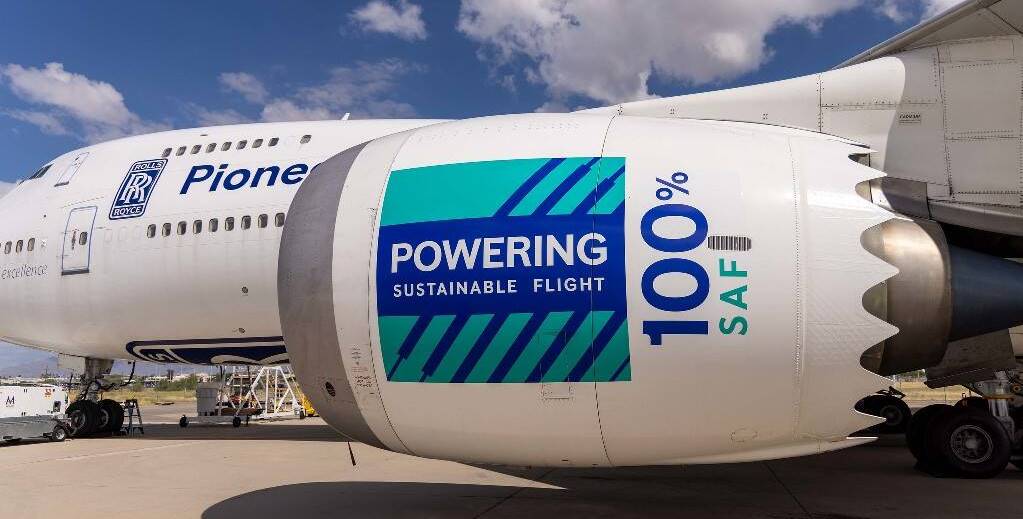
Top photo: Rolls-Royce is committing to having all its Trent engines 100% SAF compatible by 2023
Bottom photo: Rolls-Royce 747 Flying Testbed aircraft


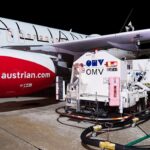
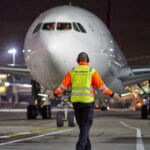
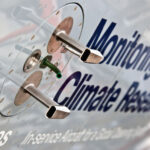


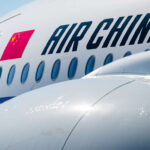
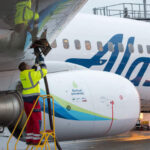
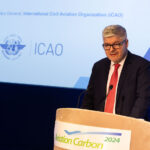

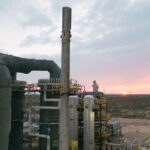

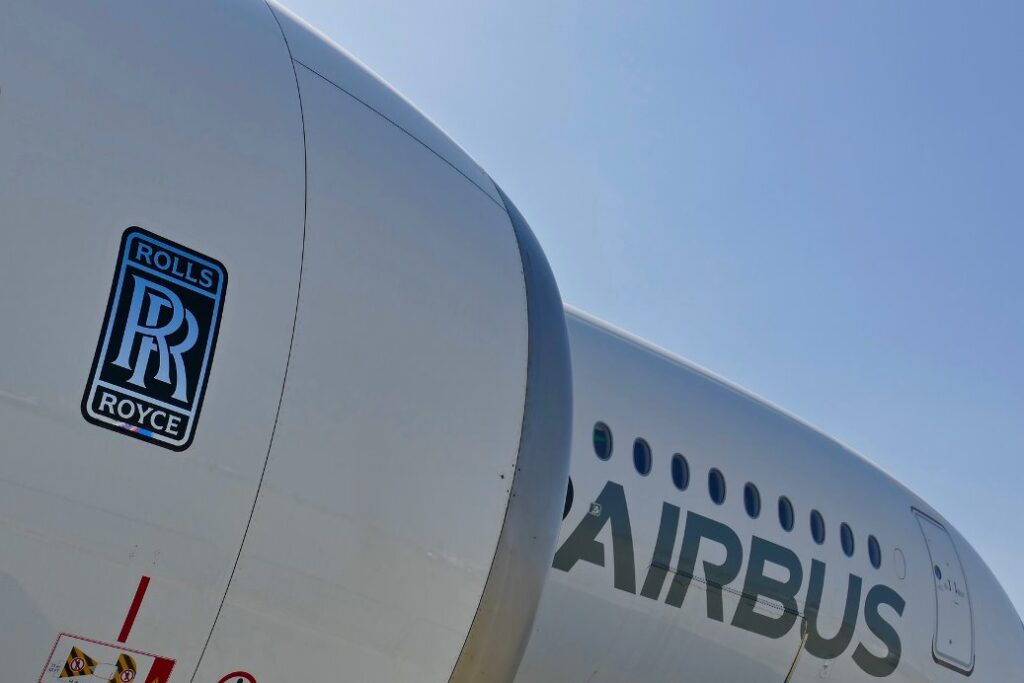

More News & Features
Progress on decarbonising the airline sector has been slow this year, says IATA chief
EASA releases status report on Europe’s SAF production and readiness to meet blending targets
UK government sets out new Jet Zero focus and launches consultation on CORSIA global emissions scheme
New study highlights differing strategies and barriers to decarbonising aviation in UK and Europe
New partnerships formed to drive e-SAF production in Nordic markets
IAG continues to go big on e-SAF as it inks 10-year offtake agreement with Infinium